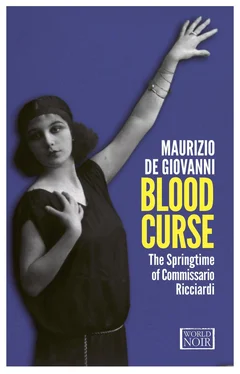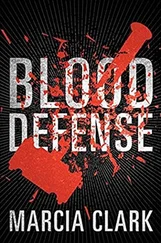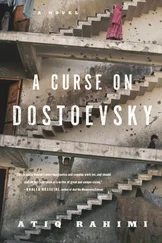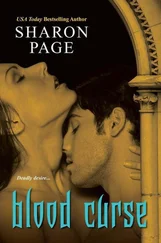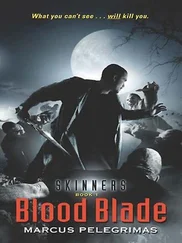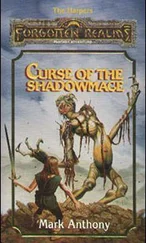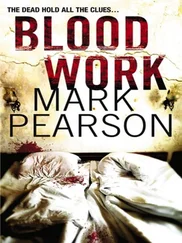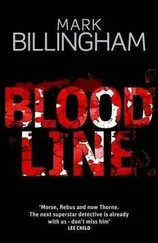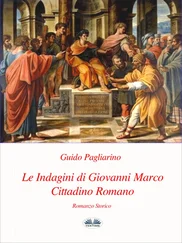Maurizio de Giovanni - Blood Curse
Здесь есть возможность читать онлайн «Maurizio de Giovanni - Blood Curse» весь текст электронной книги совершенно бесплатно (целиком полную версию без сокращений). В некоторых случаях можно слушать аудио, скачать через торрент в формате fb2 и присутствует краткое содержание. Жанр: Исторический детектив, Исторический детектив, на английском языке. Описание произведения, (предисловие) а так же отзывы посетителей доступны на портале библиотеки ЛибКат.
- Название:Blood Curse
- Автор:
- Жанр:
- Год:неизвестен
- ISBN:нет данных
- Рейтинг книги:3 / 5. Голосов: 1
-
Избранное:Добавить в избранное
- Отзывы:
-
Ваша оценка:
- 60
- 1
- 2
- 3
- 4
- 5
Blood Curse: краткое содержание, описание и аннотация
Предлагаем к чтению аннотацию, описание, краткое содержание или предисловие (зависит от того, что написал сам автор книги «Blood Curse»). Если вы не нашли необходимую информацию о книге — напишите в комментариях, мы постараемся отыскать её.
Blood Curse — читать онлайн бесплатно полную книгу (весь текст) целиком
Ниже представлен текст книги, разбитый по страницам. Система сохранения места последней прочитанной страницы, позволяет с удобством читать онлайн бесплатно книгу «Blood Curse», без необходимости каждый раз заново искать на чём Вы остановились. Поставьте закладку, и сможете в любой момент перейти на страницу, на которой закончили чтение.
Интервал:
Закладка:
Maurizio de Giovanni
Blood Curse
I
Though no one could possibly know it, the last rains of winter had fallen that afternoon. The street surface reflected the dim glow of the hanging lamps, which dangled motionless in the now-still air. The only light still shining at that hour of the night came from the barbershop. Inside, there was a man polishing a mirror’s brass surround.
Ciro Esposito possessed an iron sense of professional rectitude. He’d learned his trade as a child, sweeping up hair clippings by the ton from the floor of the barbershop that had once belonged to his grandfather, and later to his father. He was treated no better and no worse than the other employees-if anything, with an extra smack in the head or two if he was a second late in proffering the straight razor or a damp towel. But it had done him good. Now, as in the old days, his shop counted among its customers not only those from the Sanità neighborhood, but even those from the far-flung quarter of Capodimonte. He was on excellent terms with them; he understood clearly that men came to the barbershop as an escape from work and wife, and in some cases, from their political party, every bit as much as they did for the haircut and the shave. He had honed that very particular instinct that allows one to chat or to work in silence, and to always have something to say on whatever subject people liked to discuss.
He’d become quite the connoisseur on the topics of soccer, women, money and prices, honor and shame. He avoided politics, which had been such a minefield in recent years. A fruitcart peddler happened to complain about the difficulty he’d been having obtaining supplies; four guys nobody’d ever seen in the neighborhood had demolished his cart, calling him a “defeatist swine.” Ciro steered clear of gossip, too. No point in running risks. He was proud in his conviction that his barbershop constituted something of a social club, which is why he was especially worried that last month’s incident might cast a shadow over his honorable establishment.
A man had committed suicide, right there in his shop. The man in question was a longtime customer, already a regular back when his father still ran the place. A companionable, jolly fellow, who never tired of complaining about his wife, his children, the money that he never seemed to have enough of. A civil servant; he couldn’t remember what branch of government, if he’d ever known at all. Lately, the man had become gloomy and distracted, and he didn’t talk the way he’d used to, nor did he laugh at Ciro’s renowned jokes; his wife had left him, taking the children with her.
It had happened that, as Ciro was carefully trimming the man’s left sideburn with his straight razor, he’d reached up and gripped Ciro’s wrist and with a single, determined jerk of the arm, he’d cut his own throat, from ear to ear. It was pure luck that Ciro’s shop assistant and two other customers had been there to witness it, or he’d never have been able to persuade the police and the investigating magistrate that it had been a suicide. He’d quickly scrubbed everything clean and the next day he kept the barbershop closed, careful not to breathe a word of what had happened. The dead man was from another part of town. That, at least, was helpful. In a city as superstitious as Naples, it didn’t take much to get the wrong kind of reputation.
This is what Ciro Esposito was thinking about on this last night of winter, when he had finished cleaning and was getting ready to fasten and lock the two heavy wooden shutters that protected his shop’s front door. He was the only shopkeeper on the Via Salvator Rosa who worked this late. But his workday wasn’t over yet. A man, murmuring a greeting under his breath, walked into the shop.
Ciro recognized him; this was one of his oddest customers. Lean, of average height, taciturn. Thirtyish; swarthy, narrow-lipped. Nondescript in every way, except for his green and glassy eyes, and for the fact that he never wore a hat, not even in the dead of winter. What little he knew about him only heightened the discomfort he instinctively felt in his presence. These were not times in which one could afford to displease customers, especially regulars, but this one, in particular, was no walk in the park. The man said good evening, took a seat, and closed his eyes as though asleep, bolt upright in the chair, as if embalmed.
“Buona sera, Dottore,” he said, using the classic term of respect for the college-educated. “What’ll it be?”
“Just the hair, thanks. Not too short. A quick trim.”
“Yessir, I’ll have you out of here in just a moment. Make yourself comfortable.”
The man leaned back. He looked around quickly and Ciro saw him stiffen in alarm, holding his breath for a brief instant. Was it Ciro’s imagination, or had he looked at the chair on the far end of the room, the one belonging to the dead man? The barber decided he was becoming obsessed; he was starting to think that everyone who came in could see the bloodstains he’d so painstakingly scrubbed away.
With a sharp sweep of his hand, the customer brushed aside the stray shock of hair that dangled over his narrow nose. He looked even more ashen by the light of the electric lamps, as if there were something wrong with his liver; his dark complexion verged on the yellowish now. The man heaved a sigh and closed his eyes.
“Dottore, are you all right? May I get you a glass of water?”
“No, no. Just hurry, please.”
Ciro started snipping away rapidly, starting with the hair on the back of the man’s neck. He couldn’t know what the customer, eyes shut tight, was trying so hard not to look at.
The customer could see a man, sitting at the far end of the room, head sunken between his shoulders, hands lying limp on his legs, a black cloth tied around his neck, his eyes fixed on the mirror on the wall. Just above where the cape was tied ran an enormous gash, like a smile scrawled by a child, out of which waves of blood were pumping rhythmically. From behind his clamped eyelids, the customer could sense the corpse slowly turning its head to look at him: the faint snap of the vertebrae in its neck, the damp slithering of the wound’s twin lips.
“What I’d give to see how she likes it now, the slut. Now that she’s deprived her children of their father.”
The customer raised one hand to his temple. Ciro felt increasingly uneasy; there was no one on the streets at that time of night, and that good-for-nothing shop assistant of his had gone home long ago. What else could befall him? The scissors clipped away at an ever-faster pace. The man was holding his eyes shut tight, and the barber could see beads of sweat standing out on his forehead. Perhaps he had a fever.
“We’re practically finished, Dotto’. Just two more minutes and we’ll have you out of here.”
From the far end of the room, the dead man was repeating his lament. In the street outside the wide-open door, silence reigned and springtime awaited. The air itself seemed to be holding its breath.
The customer could hear the scissors chattering away, like frenzied crab claws. He was determined not to listen. What do you expect to see, anyway? You won’t see anything ever again. You won’t see how that slut likes it, and you won’t see anything else.
With a deep sigh, the barber untied the cape from around his customer’s neck.
“There you go, Dotto’. You’re all done.”
After tossing a few coins onto the side table that served as a cash register, the man walked out in search of fresh air. He was having trouble breathing.
The humid evening embraced Luigi Alfredo Ricciardi, Commissario of Public Safety in the Mobile Squad of the Regia Questura, or Royal Police Headquarters, of Naples. The man who saw the dead.
Читать дальшеИнтервал:
Закладка:
Похожие книги на «Blood Curse»
Представляем Вашему вниманию похожие книги на «Blood Curse» списком для выбора. Мы отобрали схожую по названию и смыслу литературу в надежде предоставить читателям больше вариантов отыскать новые, интересные, ещё непрочитанные произведения.
Обсуждение, отзывы о книге «Blood Curse» и просто собственные мнения читателей. Оставьте ваши комментарии, напишите, что Вы думаете о произведении, его смысле или главных героях. Укажите что конкретно понравилось, а что нет, и почему Вы так считаете.
